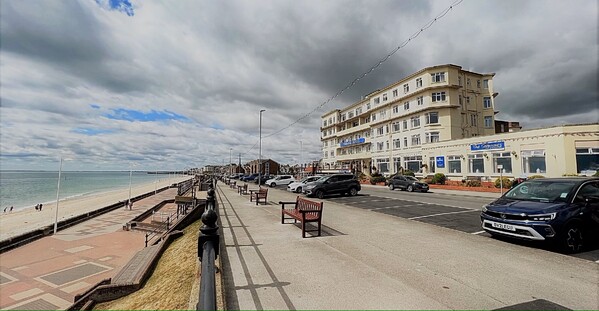Hospitality needs immediate support to prevent a tidal wave of insolvencies
Businesses closing down will have a ripple effect across the whole economy that will worsen and prolong the crisis, says Cory Bebb
The hospitality industry has faced some of the most difficult challenges over the past few years, with the once-in-a-lifetime pandemic and now another economic crisis in the form of dramatic increases in their energy bills. The soaring cost of energy threatens the very existence of many businesses dependent on using high levels of energy to trade.
The government’s pledge to provide a six-month energy package, with energy bills expected to be cut to half their expected level, is certainly welcome and will be a lifeline for many businesses. Restaurants and pubs across the UK do not have the ability to use less energy. Their high-energy output is essential for stoves, fridges, heating, lights and music, so it is vital that this support be provided immediately and a long-term plan put in place to prevent a similar crisis when these measures end.
There will be many challenges ahead as businesses look at restructuring to prevent insolvency. A mid-way review of the scheme with the option to extend it for “vulnerable businesses” is a necessary step, but this relief may already be too late.
Capping energy costs is a much-needed boost for businesses, especially heading into the busy festive period, but for many the threat of insolvency will be looming if not already here due to the rising costs of produce. The figures continue to show that the number of bars and restaurants becoming insolvent is increasing at a staggering rate. If this trend continues, many cities and towns will see a huge decrease in footfall, having a knock-on effect across multiple industries.
Energy providers must be prepared and willing to review the viability of a business customer on a case-by-case basis to avoid a similar scenario. Many businesses will be seeking to renegotiate their contract in the spring and, if energy providers want to retain their customers, they must fix the contract price and terms accordingly. If providers don’t offer a degree of flexibility with their contracts, they risk losing that customer forever.
The research is increasingly showing that otherwise viable businesses may have to turn to a formal insolvency process such as a company voluntary arrangement, as they simply will not be able to survive this crisis. For the hospitality industry, the energy crisis presents another range of challenges as customers are cutting back on luxuries, such as dining out or going for a few drinks after work.
A decrease in business will inevitably lead to greater redundancies, reduced opening hours and lower profits. Businesses also have to tackle rising inflation rates and price items accordingly, but many are reluctant to do so as they cannot afford to lose customers and so are already operating at a loss. This is not sustainable and many will have no choice but to enter an insolvency process. In these circumstances, companies’ creditors will also be asked or forced to accept a formal reduction and/or rescheduling of existing and ongoing debt, which will have a detrimental impact on the UK’s economy.
Cory Bebb is a partner and licensed insolvency practitioner at Keystone Law




















